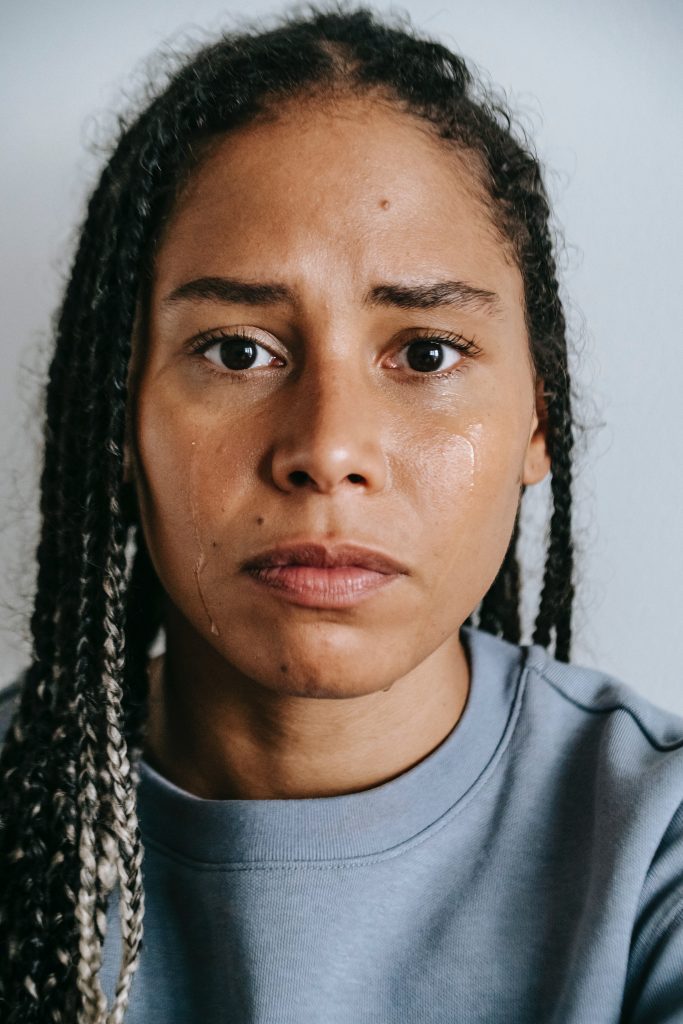8 Signs It’s Rejection Dysphoria (Not Too Sensitive)

DISCLAIMER: Please do not use the information provided by this article to self diagnose. The contents of this article are simply for educational purposes.
Have you ever felt like rejection hits you harder than it does for others? Maybe you find yourself dwelling on a casual comment or feeling crushed by a minor setback? If you have ADHD, what you’re experiencing might not just be oversensitivity but something called rejection dysphoria.
Rejection sensitive dysphoria (RSD) is an extreme fear of rejection, common among those with ADHD because of their difficulty managing their emotions. It causes intense emotional pain triggered by real or imagined rejection or criticism from others. So, how can you tell the difference between “being too sensitive” and RSD in ADHD? Here are 8 psychology-backed signs to watch out for:
Embarrassment & Self-Consciousness
Do you get embarrassed too easily or feel self-conscious about the tiniest things? If you have RSD, you probably feel like there’s a spotlight on you at all times, magnifying every little thing you do. What might seem like no big deal to others — say, dropping your keys or bumping into someone — can easily make you flustered and have your heart racing, terrified that everyone’s staring at you and whispering behind your back.
A Crisis in Confidence
Imagine you’re sitting in a meeting, and you suggest an idea that doesn’t immediately receive praise. In your mind, you start to doubt yourself: “Was it a bad idea? Am I not good enough?” This is a common scenario for individuals with ADHD and low self-esteem. Rejection Dysphoria intensifies these feelings, making it hard to see your own worth and believe in your own abilities. It turns you into your own worst critic, and then some.
Overwhelming Emotions When Rejected
Rejection stings, but for someone with RSD, it can feel almost unbearable. A harmless comment feels like a slap in the face. A little mishap is enough to keep you up at night. You might react externally (like lashing out in anger, or bursting into tears) or internally (retreating into a shell of sadness). Either way, rejection always leads to intense emotional reactions that are difficult to control.
Overthinking & Self-Blame
When someone tries to let you down gently, saying, “Don’t take this personally,” it can feel impossible not to, especially if you have rejection dysphoria. RSD can make you take other people’s criticisms or negative reactions to heart, often blaming yourself and feeling like a failure. This internalization can quickly spiral into sudden but strong feelings of depression.
People-Pleasing Out of Fear
Do you go to great lengths just to please others, even at the expense of your own well-being? Whether it’s overcommitting to tasks or saying yes when you really mean no, the desire to avoid disapproval can be a powerful driving force for someone who struggles with RSD. It can trap you in a vicious cycle of people-pleasing fueled by the fear of being rejected if you dare to say no.
Avoiding Failure
Ever put off a task because the fear of failing feels too overwhelming? It’s not just about failing; it’s about what failing says about you as a person. You start imagining worst-case scenarios, convinced that one misstep will lead to a downward spiral of rejection and failure. But here’s the reality check: it’s not the end of the world. It’s just your rejection dysphoria catastrohpizing everything.
Compensatory Perfectionism
Aside from avoiding anything you don’t know or you’re not good at, people with rejection dysphoria are also prone to compensatory perfectionism. They’re driven by a relentless desire to be perfect because they believe that perfection is the only way they can protect themselves against rejection. It offers a fleeting sense of control in a world where rejection feels like an ever-present threat. But pursuit of this unattainable ideal comes at a steep cost; it breeds anxiety, drains energy, and may lead you to neglect your own self-care.
Negative Perceptions
Rejection dysphoria can feel like a detective in your mind, always on the lookout for signs of rejection. Someone doesn’t smile back? Must be because they don’t like you. Friend seemed a bit distant today? Uh-oh, they want you out of their life. See, it’s easy to fall into this thinking trap, but he truth is, not everything is about you and not everything is a rejection. So, before you spiral into self-doubt and anxiety, take a breather and give yourself the benefit of the doubt. It could just be your RSD causing you to perceive neutral stimuli negatively.
Awareness of Rejection Dysphoria can help you understand the unique way your brain processes rejection and learning to navigate it with compassion and resilience. The next time you feel that familiar pang of rejection, know that you’re not just about being “too sensitive.”
So, did you learn anything valuable from this video? Comment your thoughts down below! Subscribe to our channel for more insightful mental health content, like “Things You Didn’t Know Are Gaslighting” and “Why Does Today’s World Make You So LONELY” Don’t forget to like and share before you go. Thanks for watching!
SOURCES:
- Cleveland Clinic. (2022, August 30). Rejection sensitive dysphoria (RSD): Symptoms & treatment. Cleveland Clinic. https://my.clevelandclinic.org/health/diseases/24099-rejection-sensitive-dysphoria-rsd
- Dodson, W. (2023, December 20). New insights into rejection sensitive dysphoria. ADDitude. https://www.additudemag.com/rejection-sensitive-dysphoria-adhd-emotional-dysregulation/
- Herndon, J. R. (2024, January 17). Rejection sensitivity: Am I overreacting?. Verywell Health. https://www.verywellhealth.com/rejection-sensitivity-vs-rsd-5271409
- Nunes-Harwitt, M. (2023, August). Rejection sensitivity. University of Rochester Medical Center. https://www.urmc.rochester.edu/behavioral-health-partners/bhp-blog/august-2023/rejection-sensitivity.aspx
- Watson, S., & Bhandari, S. (2023, May 2). Rejection sensitive dysphoria: Causes and treatment. WebMD. https://www.webmd.com/add-adhd/rejection-sensitive-dysphoria#1-1




Responses